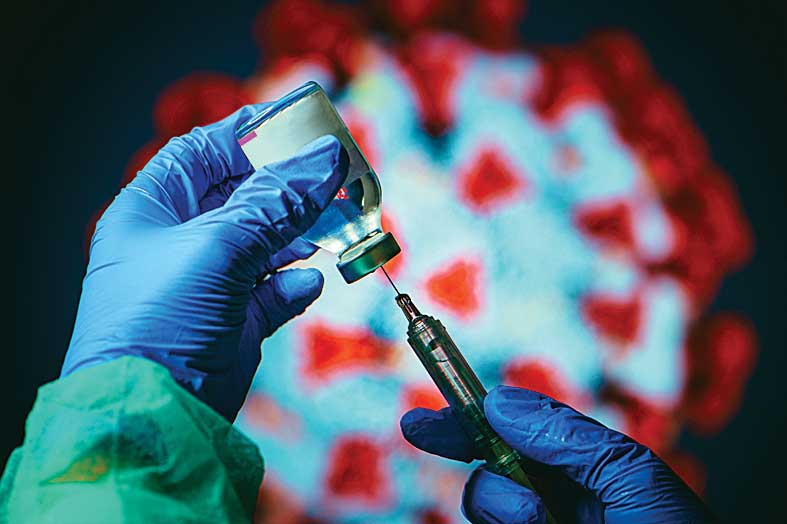Several private hospitals have reported a reduced footfall for Covid vaccines on their premises over the past week.
The good in that is the decentralisation of the vaccination drive seems to have had an effect. And the bad is that some doctors and public health experts see fresh hesitancy creeping in with swirling rumours about adverse effects and efficacy.
Apollo Gleneagles Hospitals was vaccinating 800 to 900 people every day on its premises. But over the past week, the footfall has come down to around 500.
“The frantic calls for slots, which we had been getting since the beginning of May, have stopped,” said an official of the hospital. "The reduced footfall at the hospital could be because many other centres in the city are vaccinating people.”
Some of the big private hospitals that had procured doses directly from the manufacturers after May 1 have sent requisitions for fresh doses to the state government, which had offered to help private units source vaccines.
Officials of these hospitals said they were not sure when the next consignments would arrive and so they have slowed the drive.
The three units of AMRI Hospitals were together vaccinating 3,500 to 4,000 people every day a week back. The hospital chain was also inoculating an almost equal number of people daily at residential complexes and offices of corporate houses.
"We have now restricted vaccination to around 2,000 people at our hospitals and 3,000 at off sites because of stock issues," said Rupak Barua, the group CEO of AMRI.
"We are distributing the existing stocks in a way to ensure that we don't have to discontinue the vaccination drive completely at one point. We have stocks for another five to six days and the manufacturer of Covishield has informed us that a consignment of 48,000 doses, for which we had paid earlier, would arrive in a week,” he said.
Fortis hospital is asking residents' welfare associations and corporate houses who are approaching them for off-site vaccination to get the doses from other hospitals.
“We are left with only 500 doses of Covishield and 5,000 doses of Covaxin. We have sent a requisition for around 2 lakh Covishield doses and 20,000 Covaxin doses to the state government. We are awaiting feedback from the government,” said Richa Singh Debgupta, the chief of strategy and operations at Fortis Healthcare.
However, some hospitals said they were not sure why the footfall had gone down.
The RN Tagore International Institute of Cardiac Sciences was administering vaccines to around 3,000 people at its Mukundapur unit daily. Now, the footfall has come down to 1,500.
“We are procuring doses centrally and have also submitted a requisition to the state government. There is no shortage of doses but the footfall has reduced," said R. Venkatesh, regional director, east, Narayana Health, which runs the Mukundapur hospital.
Some of the doctors and public health experts said certain rumours - such as vaccinated persons developing magnetic fields in their bodies, people dying after vaccination and inadequate formation of antibodies even after two doses - could have slowed the drive.
"These baseless rumours... forwarded through social media... can do a lot of harm. Vaccine is the only weapon against Covid till now," said public health expert Abhijit Chowdhury.
Chandramouli Bhattacharya, a consultant in infectious diseases, felt such rumours could lead to fresh vaccine hesitancy. "Once cases go down further, such rumours could trigger another phase of hesitancy,” said Bhattacharya.










